Johannesburg’s vibrant culinary scene reflects the city’s rich migration history. From the beloved Bunny Chow to the classic Pap and Wors, each local dish tells a story of the diverse cultures that have shaped Johannesburg. These flavors offer a delicious window into the resilience and adaptability of the city’s residents, whose journeys through Johannesburg’s tumultuous past have left an indelible mark on its identity. Exploring this culinary landscape provides an insightful glimpse into the challenges and triumphs that have defined the city’s transformation over time.
Key Points
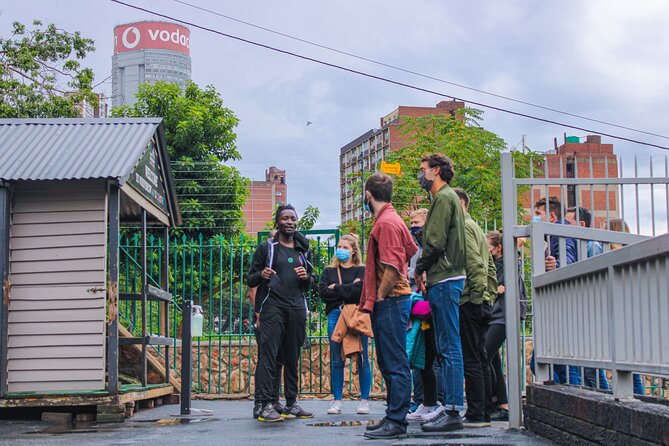
- Johannesburg’s diverse migration history, from European settlers to rural Africans, shaped the city’s cultural and social landscape since its hotel in 1886.
- Maboneng district’s transformation from a derelict industrial zone to a cultural hub represents Johannesburg’s migration history and cultural evolution.
- Apartheid’s restrictive laws on the movement of Black, Coloured, and Indian South Africans led to forced migration and spatial injustice, which continue to impact the urban landscape.
- Johannesburg’s culinary scene reflects its diverse population, featuring traditional South African dishes like pap and wors, as well as international fare.
- Exploring Johannesburg’s migration narratives fosters a deeper understanding of the city’s transition from apartheid to democracy and the resilience of its migrant communities.
Johannesburg’s Migration Roots

Johannesburg’s history as a major city is deeply intertwined with migration patterns. Established in 1886 after the discovery of gold, the city quickly became a magnet for prospectors and laborers from across South Africa and beyond.
Waves of migrants, including European settlers, rural Africans, and skilled artisans, flocked to Johannesburg in search of economic opportunities. This influx of diverse populations shaped the city’s cultural and social fabric, leading to the development of vibrant communities and the emergence of complex racial dynamics.
Johannesburg’s evolution as a commercial and industrial hub was inextricably linked to its status as a center of migration, a legacy that continues to influence the city’s identity and challenges today.
Here are more great tours and experiences we've reviewed in Johannesburg
Maboneng District Exploration
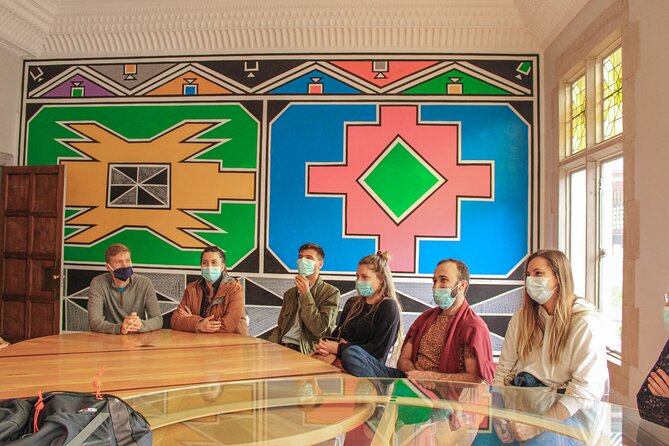
The Maboneng district, a vibrant neighborhood in the heart of Johannesburg, embodies the city’s rich tapestry of migration and transformation.
Visitors will explore this dynamic area, once a derelict industrial zone, now reborn as a hub of arts, culture, and entrepreneurship.
Strolling through Maboneng’s revitalized streets, they’ll discover galleries, boutiques, and cafes that showcase the creativity of local artists and designers.
The tour offers a unique opportunity to explore Johannesburg’s migration history, learning how this neighborhood has evolved from its humble beginnings to a thriving epicenter of the city’s vibrant cultural scene.
Apartheid’s Impact on Migration
Apartheid’s restrictive laws and policies significantly impacted migration patterns in Johannesburg. The apartheid regime mandated where Black, Coloured, and Indian South Africans could live and work.
This forced millions to move to designated segregated townships, often far from economic opportunities. Families were separated, and access to jobs, healthcare, and education was severely limited.
The migrant labor system also compelled many rural residents to seek work in the city, living in cramped single-sex hostels.
Apartheid’s legacy of spatial injustice and social engineering continues to shape Johannesburg’s urban landscape and communities today.
Diverse Culinary Experiences
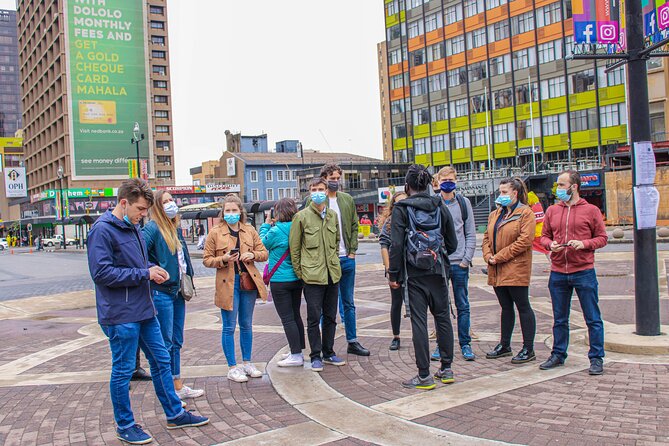
Amidst the complex history of Johannesburg’s migration, the city’s culinary landscape has blossomed into a vibrant tapestry reflecting its diverse population.
From traditional South African dishes to international fare, the local food scene offers a delectable exploration of cultures.
Travelers can savor:
- Hearty Pap and Wors, a classic staple of maize porridge and grilled sausage
- Flavorful Bunny Chow, a hollowed-out loaf of bread filled with fragrant curry
- Decadent Malva Pudding, a sweet, spongy dessert with a rich caramel sauce
This multifaceted culinary journey allows visitors to enjoy Johannesburg’s rich heritage and the stories it holds.
Reflecting on Transitional Narratives
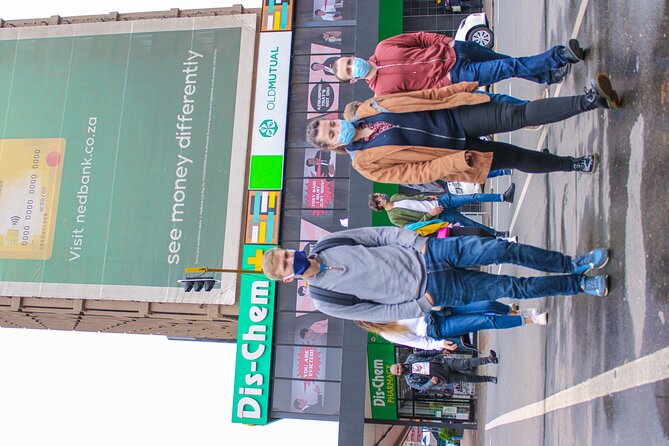
Johannesburg’s migration history reflects the city’s complex and often turbulent transition from the apartheid era to a more inclusive, democratic society.
Waves of migration, both within South Africa and from neighboring countries, have shaped the city’s cultural fabric. As residents navigated these shifts, their stories illuminate how individuals and communities grappled with issues of identity, belonging, and social change.
Exploring these narratives provides a nuanced understanding of Johannesburg’s evolution, highlighting the resilience and adaptability of its people.
Through this tour, travelers can gain insight into the city’s transformative journey, fostering a deeper appreciation for the multifaceted nature of urban migration and its impact on shaping modern South Africa.
Fascinated by Johannesburg's past? More historical tours we've covered
- Soweto Township Cultural Tour Incl Apartheid Museum and Nelson Mandela House
- Cradle of Humankind World Heritage Site
- Apartheid Museum: Immersive History Tour & Experience
- Johannesburg: Soweto History Tour With African Lunch
- Historical Soweto & Apartheid Museum Tour
- Johannesburgs Migration History With a Local Lunch
Understanding Urban Transformation
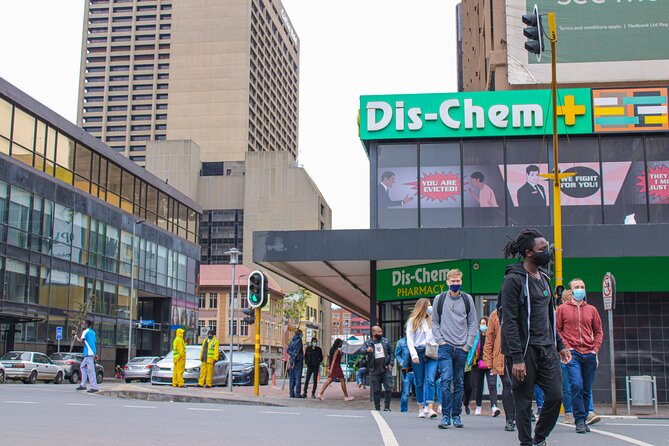
The city’s evolving demographics and urban landscape reflect the broader transformations shaping Johannesburg.
As waves of migration reshape the urban fabric, the city grapples with:
- Rapid urbanization and the rise of informal settlements
- Tensions between modernity and heritage in architectural design
- Efforts to promote inclusive development and social cohesion
These dynamics underscore how Johannesburg’s journey mirrors the larger story of urban change across the African continent.
Understanding this evolution is key to navigating the complex challenges and opportunities that define the city’s future.
Connecting With Local Residents
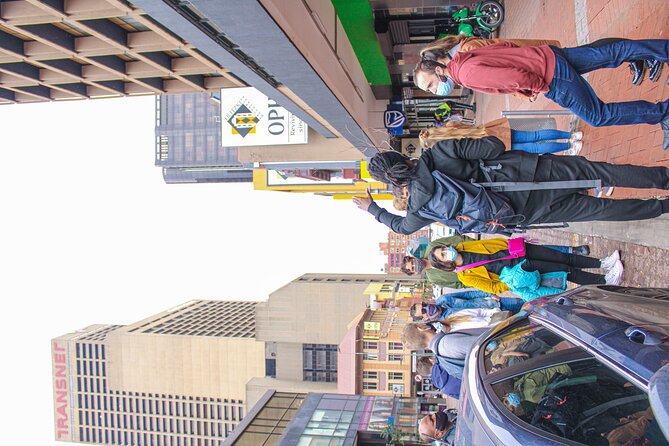
Against the backdrop of Johannesburg’s storied migration history, the tour offers a unique opportunity to connect with local residents and gain firsthand insights into their lived experiences.
Participants will have the chance to engage with community members, learn about their personal stories, and explore the vibrant neighborhoods that have shaped the city’s cultural fabric.
Through these meaningful interactions, travelers can develop a deeper understanding of the complex social dynamics and challenges faced by Johannesburg’s diverse population.
This immersive experience allows visitors to move beyond the surface-level narratives and forge genuine connections with the people who call this dynamic city home.
Takeaways and Considerations
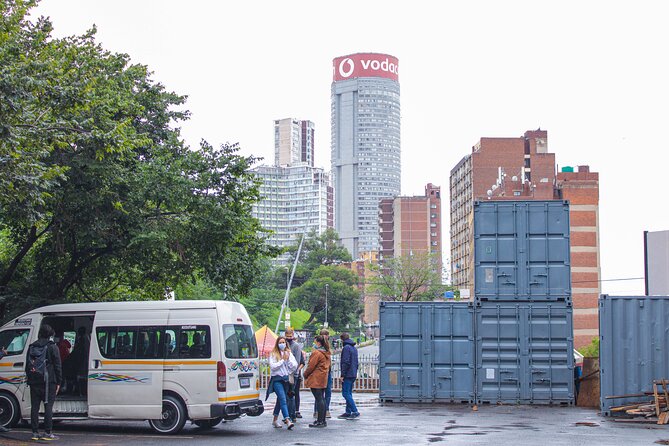
By engaging with local residents and seeing Johannesburg’s vibrant communities, participants on this tour can gain invaluable insights and takeaways.
Some key considerations include:
-
An enhanced understanding of the complex social and cultural dynamics that have shaped Johannesburg’s diverse population over time.
-
Appreciation for the resilience and adaptability of migrant communities in the face of challenges such as socioeconomic disparities and political upheaval.
-
Inspiration to explore ways of fostering greater intercultural dialogue and promoting inclusive development strategies within urban environments.
Frequently Asked Questions
Can I Bring My Own Food on the Tour?
The tour does not allow participants to bring their own food. The inclusions for the tour specifically mention that lunch is provided, along with bottled water, as part of the private transportation experience.
Do I Need to Bring Any Special Equipment?
No special equipment is needed for this tour. The tour includes private transportation and a local lunch, so travelers can focus on enjoying the experience without needing to bring any additional gear or supplies.
Is There a Discount for Children or Seniors?
The tour does not offer any discounts for children or seniors. The price is a flat rate of €24.18 per person, regardless of age. All travelers pay the same fee to participate in the tour.
Can the Tour Be Customized for My Group?
Based on the tour information provided, the tour cannot be customized for your group. The tour offers a standard private transportation experience with a fixed itinerary and maximum participant limit of 30 travelers.
What Is the Cancellation and Refund Policy?
The tour has a no-refund cancellation policy. However, there are no fees for cancellations, so travelers can cancel their bookings without incurring any charges.
Recap
Johannesburg’s vibrant culinary scene reflects its diverse migration history. Enjoying local dishes like Bunny Chow and Pap and Wors offers a delicious insight into the flavors brought by various migrant communities. These dishes tell stories of resilience, adaptation, and the rich tapestry of the city’s identity, while also highlighting the challenges and triumphs of its residents throughout Johannesburg’s tumultuous past.
More Lunch Experiences in Johannesburg
More Tour Reviews in Johannesburg
Not for you? Here's more things to do in Johannesburg we have recnetly reviewed
- 12 Best 2 Day Tours In Johannesburg
- 20 Best 3 Day Tours In Johannesburg
- 20 Best 4 Day Tours In Johannesburg
- 7 Best Dining Experiences In Johannesburg
- 20 Best Full-Day Tours In Johannesburg
- 7 Best Dinner Tours In Johannesburg
- 22 Best Lunch Experiences In Johannesburg
- 7 Best Food Tours In Johannesburg
- Hassle-Free Airport Shuttle: OR Tambo to Sandton Morningside
- Johannesburg (Sunset & Dinning & Rooftop) Hopping Experience
- Drakensberg Mountains. Tugela Gorge and Amphitheater Hike
- Overnight Hike Sentinal Peak and Tugela Falls
